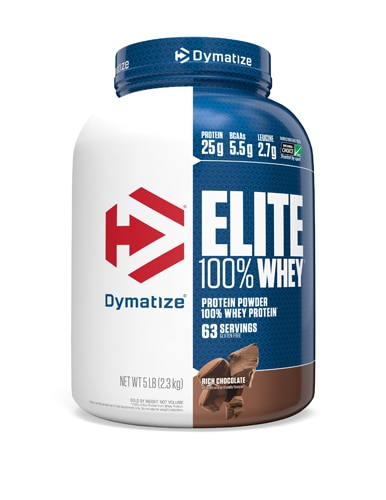[vc_row][vc_column][vc_column_text]Americans love protein, and the growing number of "high-protein" products on grocery store shelves reflects our obsession. Social media is
abuzz with talk about high-protein foods, and if you ask the average person what nutrients they're focused on consuming,
67% cite protein as a top concern.
The attention isn't entirely unwarranted. Protein has several important functions, including:
- Maintaining and repairing cells and tissues
- Providing the building blocks for hair, skin, bones, muscles and connective tissue
- Synthesizing hormones, neurotransmitters and immune molecules
- Creating enzymes (the molecules that regulate chemical reactions in our bodies)

Although we often associate protein with bulking up at the gym, we wouldn't just be weak and skinny without it: Our bodies wouldn't function at all. So we reach for protein shakes and protein bars, top oatmeal with fried eggs and stir protein powder into cookie batter in a quest to boost our intake.
But before that protein gets to our muscles and tissues, it has to pass through our guts.
Protein and gut health: the breakdown
During digestion, enzymes called proteases and peptidases break proteins down into individual amino acids, which are absorbed into the bloodstream and stored in the liver. When our bodies need to make new proteins, stored amino acids are reassembled in a process called
transamination.
Gut microbes are key players in protein breakdown. Species like
Bacteroides,
Prevotella, Veillonella,
Megasphaera and
Acidaminococcus are
proteolytic; that is, they specialize in digesting proteins and absorbing amino acids. When amino acids arrive in the colon, these species feed on them and produce compounds called metabolites that can influence our health.
The number of proteolytic microbes in our guts depends on how much protein we eat and how well our bodies absorb it. More protein reaching the colon means more protein-digesting microbes and more of their metabolites—which may or may not be a good thing.
How does protein affect gut health?
Research shows that high-protein diets can
change the gut microbiome's composition and the metabolites it produces.
Some changes are favorable:
But other metabolites
may be genotoxic, meaning they can damage our DNA and contribute to gut health problems. These include:
- Ammonia, known to be toxic in high amounts
- Nitrosamines, a group of known carcinogens
- Heterocyclic amines, which are associated with colon cancer
- Hydrogen sulfide, which may cause gut barrier damage by interfering with butyrate activity
Eating more protein than we need may shift the populations of bacteria in our guts toward species that produce these metabolites—and some types of protein can be more damaging than others.
Does protein source matter for gut health?
The current body of scientific research suggests that both plant- and animal-based proteins can benefit gut health. As we explore the science, it's important to keep a few things in mind:
- Many studies have been done on animals like mice and rats, which may not react to protein the same way we do
- Proteins are often studied in isolation rather than as part of a whole food or dietary pattern
- Results are often based on short-term interventions or lab experiments and can't always help us understand long-term effects
- Some types of microbes can be beneficial or harmful depending on the overall balance of microbial populations in the gut
- Study results sometimes contradict each other, which suggests we need to learn more about the microbiome before we can make concrete suggestions for protein intake and gut health
Even with these limitations, science can tell us a lot about how food interacts with our bodies and provide guidelines for choosing gut-healthy proteins.
Plant-based protein and the gut microbiome
Replacing animal protein with plant protein is generally associated with improvements in the gut microbiome and overall health. All plants have protein, but the
best sources include:
These proteins come packed with dietary fiber, which boosts populations of microbes like
Bacteroidetes that break down fiber to produce SCFAs. Whether they come from fiber or protein, SCFAs are associated with
lower inflammation, better immune function and a stronger gut barrier.
Eating plant-based proteins may also increase populations of
Bifidobacterium and
Lactobacillus, species that help control the growth of pathogens in the gut. Some studies show increases in lactic acid bacteria, the same microbes that
give fermented foods their purported benefits.
But the isolated proteins found in "high-protein" snacks and drinks may not be so good for us. One study on rats showed that
soy protein may reduce beneficial Lactobacillus bacteria while increasing Ruminococcus, a microbe that
may contribute to irritable bowel syndrome (IBS) or inflammatory bowel disease (IBD) when it becomes too abundant.
Meat and gut health: Is animal protein good or bad?
Study results differ on how proteins from meat and dairy affect our microbiomes. Animal proteins are more digestible than plant proteins, meaning fewer undigested amino acids may reach our colons. But the source of those amino acids appears to influence whether our microbes produce beneficial or harmful metabolites. For example:
- Processed meats like hot dogs, lunch meat and bacon have more sulfur-containing amino acids, which prompts our guts to pump out more hydrogen sulfide
- High red meat intake is associated with higher levels of trimethylamine-N-oxide (TMAO), a compound that may increase cardiovascular disease risk
- Chicken protein and other white meat proteins may increase populations of anti-inflammatory Lactobacillus
A review of studies on dairy products, including fermented dairy like kefir, suggests that consuming dairy may increase
Bifidobacterium and
Lactobacillus populations, perhaps because dairy contains sugars that can feed our gut microbes. (However, the review was partly funded by a dairy company, which could influence the researchers' conclusions.)
What about fish? Studies on gut health and seafood are scant, but the results of
a 2018 paper published in Nutrients suggest that lean
seafood may favorably affect energy metabolism—but can also increase TMAO production.
How to eat protein for gut health
So is our societal fixation on protein helping or hurting our guts? When taken together, study results suggest that balancing our overall dietary patterns is more important than honing in on a single nutrient.
Instead of reaching for cereal made largely from
protein isolates or filling our carts with high-protein chips and candy, we can support our microbiomes by:
- Reducing processed and red meat intake to minimize harmful metabolites
- Avoiding packaged products with added protein
- Eating protein from various whole and minimally processed sources throughout the week
- Emphasize plant-based proteins from high-fiber sources like beans
Most of us don't need to go crazy with protein. Although
requirements vary based on factors like age, weight, sex, life stage and activity level, the average person needs much less than someone who trains heavily. Eating too much protein
may interfere with SCFA production and put us at risk of gut damage from conditions like IBD—so it's probably best to leave the protein shakes to the bodybuilders and enjoy a good lentil soup instead.
†These statements have not been approved by the Food and Drug Administration. These products are not intended to diagnose, treat, cure or prevent disease.[/vc_column_text][/vc_column][/vc_row][vc_row][vc_column][vc_text_separator title="Featured Products" border_width="2"][vc_row_inner equal_height="yes" content_placement="middle" gap="35"][vc_column_inner width="1/3"][vc_single_image image="174453" img_size="full" alignment="center" onclick="custom_link" img_link_target="_blank" css=".vc_custom_1713478863897{padding-right: 7% !important;padding-left: 7% !important;}" link="https://www.vitacost.com/orgain-organic-vegan-21g-protein-powder-plant-based-vanilla-horchata"][/vc_column_inner][vc_column_inner width="1/3"][vc_single_image image="174452" img_size="full" alignment="center" onclick="custom_link" img_link_target="_blank" css=".vc_custom_1713478880677{padding-right: 7% !important;padding-left: 7% !important;}" link="https://www.vitacost.com/orgain-organic-vegan-21g-protein-powder-plant-based-vanilla-horchata"][/vc_column_inner][vc_column_inner width="1/3"][vc_single_image image="174451" img_size="full" alignment="center" onclick="custom_link" img_link_target="_blank" css=".vc_custom_1713478898512{padding-right: 7% !important;padding-left: 7% !important;}" link="https://www.vitacost.com/align-probiotic-gut-health-immunity-support"][/vc_column_inner][/vc_row_inner][/vc_column][/vc_row]
 Although we often associate protein with bulking up at the gym, we wouldn't just be weak and skinny without it: Our bodies wouldn't function at all. So we reach for protein shakes and protein bars, top oatmeal with fried eggs and stir protein powder into cookie batter in a quest to boost our intake.
But before that protein gets to our muscles and tissues, it has to pass through our guts.
Although we often associate protein with bulking up at the gym, we wouldn't just be weak and skinny without it: Our bodies wouldn't function at all. So we reach for protein shakes and protein bars, top oatmeal with fried eggs and stir protein powder into cookie batter in a quest to boost our intake.
But before that protein gets to our muscles and tissues, it has to pass through our guts.



